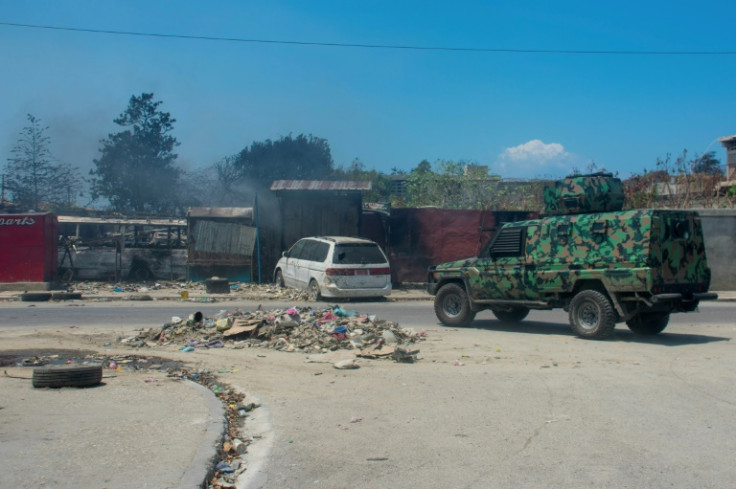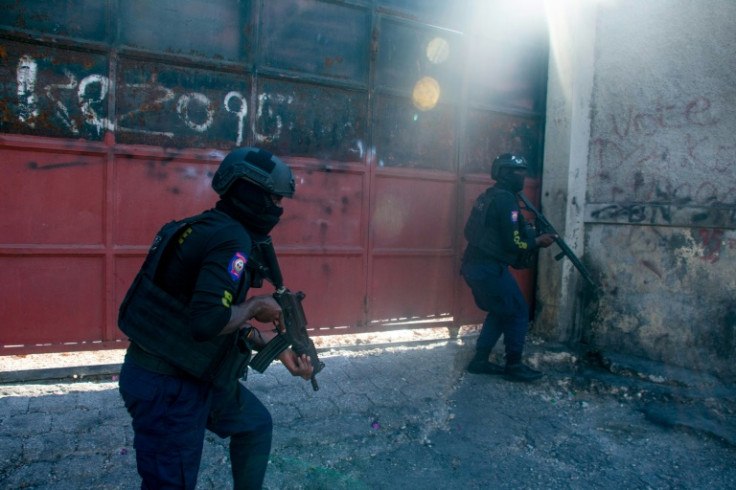
As widespread violence exacerbated even more in Haiti since late February, tens of thousands have escaped the clashes, whether moving internally or leaving the country altogether.
Many foreigners are included in this second category, hundreds of Americans among them. At least 450 nationals have been evacuated over the past months, either through planes chartered by the U.S. government, a similar initiative by the Florida state government or private initiatives.
But many others who want to escape have not been able to do so and are desperately scrambling to find a way, NBC News reported. The outlet spoke to a woman who could enter the U.S. along with her husband and oldest daughter, but hasn't formally adopted her two twin girls yet so she can't get them in the country.
"We've been trying to get them Haitian passports, but the immigration office has been closed for weeks. They don't have a way to leave the country at this point," Erica Childs Charles told NBC, adding that American officials told her they can't do much for her.
"The problem I'm running into is I am the only American citizen in my family and so the U.S. embassy has had occasional helicopters to evacuate U.S. citizens, but I would have to go and leave my family behind. And that's something I can't do."
Hers is among the many cases of people increasingly unable to move around the country as armed gangs solidify their control of the capital, Port-au-Prince, and key infrastructure. At least 1,600 Americans had filled out a State Department crisis intake, seeking help to flee the country.
The airport has been shut down, complicating evacuation efforts and leading the U.S. to charter planes and helicopters from Cap-Haïtien, a city further up north. Some have been evacuated by private helicopters from the capital to neighboring Dominican Republic, where they have to reimburse the U.S. government and then find their own way home.

Over 50,000 people have been reported to flee Port-au-Prince in in the past three weeks, Euronews reported. More than 60% of the population is heading to the southern, more rural region of the country, something that has worried UN officials as the area lacks the infrastructure needed to address the needs of that many people.
The Haitian capital continues to be a battleground, with new clashes reported on Monday in the vicinity of the Presidential Palace. At least one police officer sustained a gunshot wound and gang members set fire to an armored vehicle, according to Infobae.
Haiti continues immersed in chaos as the country's recently-formed transitional council, tasked with overseeing a political transition, is slow to get going. Following weeks of negotiations, the body issued its first statement this week, vowing to restore "public and democratic order."
Once the Presidential Council is officially installed, it will be tasked with appointing a new president, approving a multinational security force to deal with the violence and pave the way for general elections.
Prime Minister Ariel Henry, leading the country since the murder of President Jovenel Moïse in 2021, said he will resign when the council is installed. However, he hasn't been able to enter the country for weeks now after leaving as gang activity intensified.
© 2024 Latin Times. All rights reserved. Do not reproduce without permission.







